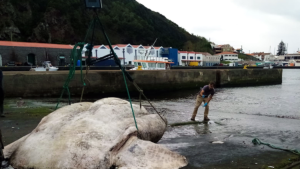On March 8, The United Nations Fact Finding Committee released a 20-page report accusing the Islamic Republic of Iran of committing “crimes against humanity” during 2022’s Woman, Life, Freedom protests. The report, presented to the UN Human Rights Council, delves into the Iranian government’s response to the demonstrations that erupted following the tragic death of Mahsa (Jina) Amini while in the custody of the morality police. These protests, ignited by Amini’s killing, centered on the Islamic Republic’s horrific treatment of women and children, drawing global attention to Iran’s mass violation of human rights.
Investigations by the committee paint a disturbing picture of violence, sexual harassment, and gender-based persecution by Iranian authorities. The findings highlight specifically the excessive use of force, arbitrary arrests, and detentions, as well as alarming conditions in detention facilities. Furthermore, the report criticizes the regime’s efforts to suppress protests through digital manipulation and judicial interference.
A focal point of the report is the death of Mahsa (Jina) Amini. The report concludes, based on an examination of available evidence, that Amini’s death was a result of physical violence inflicted by the morality police. It states “Based on the evidence and patterns of violence by the morality police in the enforcement of the mandatory hijab on women, the mission is satisfied that Ms. Amini was subjected to physical violence that led to her death.” It also notes the arbitrary nature of Amini’s detention and asserts that the mandatory hijab laws violate international law. Those laws “fundamentally discriminate against women and girls and are not permissible under international human rights law” as they “violate the rights to freedom of expression, freedom of religion or belief and the autonomy of women and girls.” The committee condemned the Iranian government for its lack of a thorough and impartial investigation into her death, its attempts to conceal the circumstances from her family and the public, and its use of harassment and intimidation.
The government’s brutal crackdown on Iranian citizens’ right to peaceful assembly, who it often labeled as “rioters” or “enemies,” led to a tragic death toll in a matter of months: 551 fatalities, including 49 women and 68 children, across 26 provinces, with a pronounced impact in minority regions. The use of torture and sexual and gender-based violence within government detention facilities was also documented, underscoring the severe human rights abuses perpetrated by the state behind closed doors.
The report also notes that during the protests, security forces were also killed and injured in instances of violence allegedly perpetrated by protesters. However, the report concludes that the vast majority of the protests were peaceful.
The report not only catalogs human rights violations but also condemns the suppression of ethnic and religious minorities and the government’s use of digital platforms to stifle dissent. It asserts that these actions constitute “crimes against humanity”, implicating various branches of the Iranian security apparatus, including the Islamic Revolutionary Guard Corps, Basij forces, and the police.
In response to the report, the Ministry of Foreign Affairs’ spokesperson Nasser Kanaani condemned the UN committee and accused it of fabricating and misrepresenting the facts. According to Iranian media outlets, Kanaani criticized the UN fact-finding committee for “deliberate distortions and falsehoods”. Furthermore, Kanaani characterized the findings of the UN committee as being “politically motivated” and lacking in legal credibility.
The National Iranian American Council (NIAC) supported the calls for an independent United Nations fact-finding investigation into Iran’s crackdown on protests in 2022 and applauds the work done thus far to document and verify the many human rights violations that occurred. Moreover, NIAC calls on the Iranian government to immediately implement the recommendations in order to comply with its international human rights obligations, including: halting all executions; unconditionally releasing all individuals arbitrarily arrested and detained in relation to the protests or for opposing or advocating against the mandatory hijab; stopping the judicial harassment of protesters, victims, and their families; repealing or amending laws discriminating against women, girls, and also men and boys, especially those regarding the mandatory hijab; disbanding the enforcement system that persecutes individuals for non-compliance with the mandatory hijab; and ensuring justice, truth, and reparations for victims of human rights violations related to the 2022 protests including survivors and their families. The fundamental freedoms and rights of all Iranians must be observed in Iran and the Iranian government must halt its efforts to systematically target its citizens for expressing themselves.




